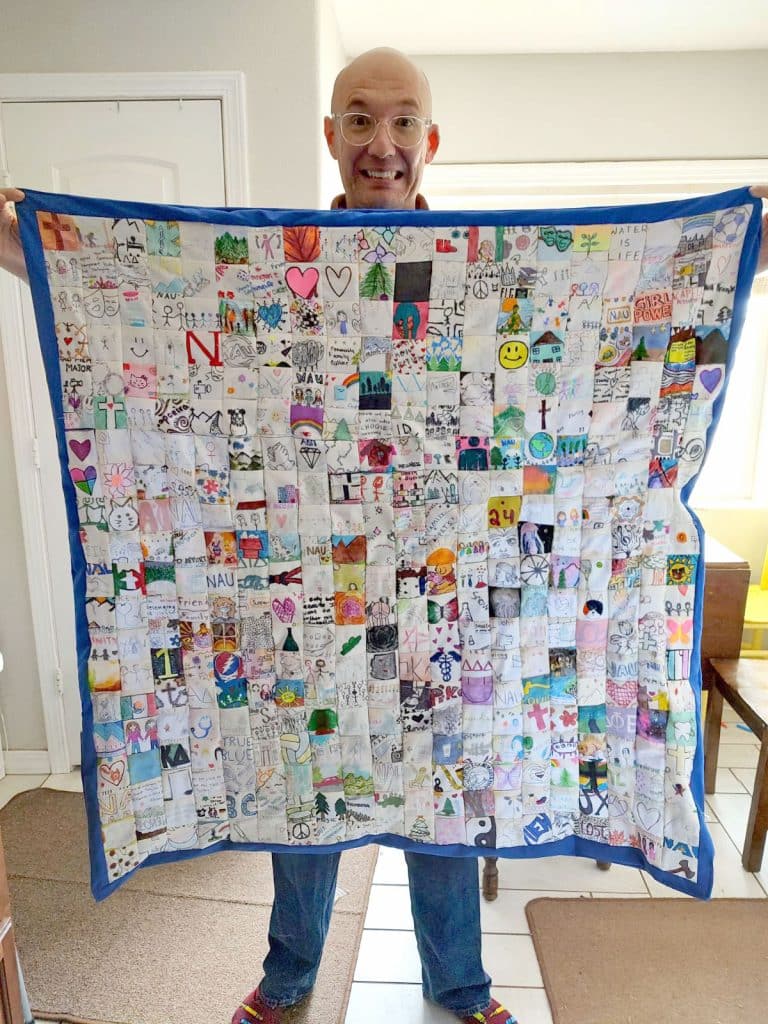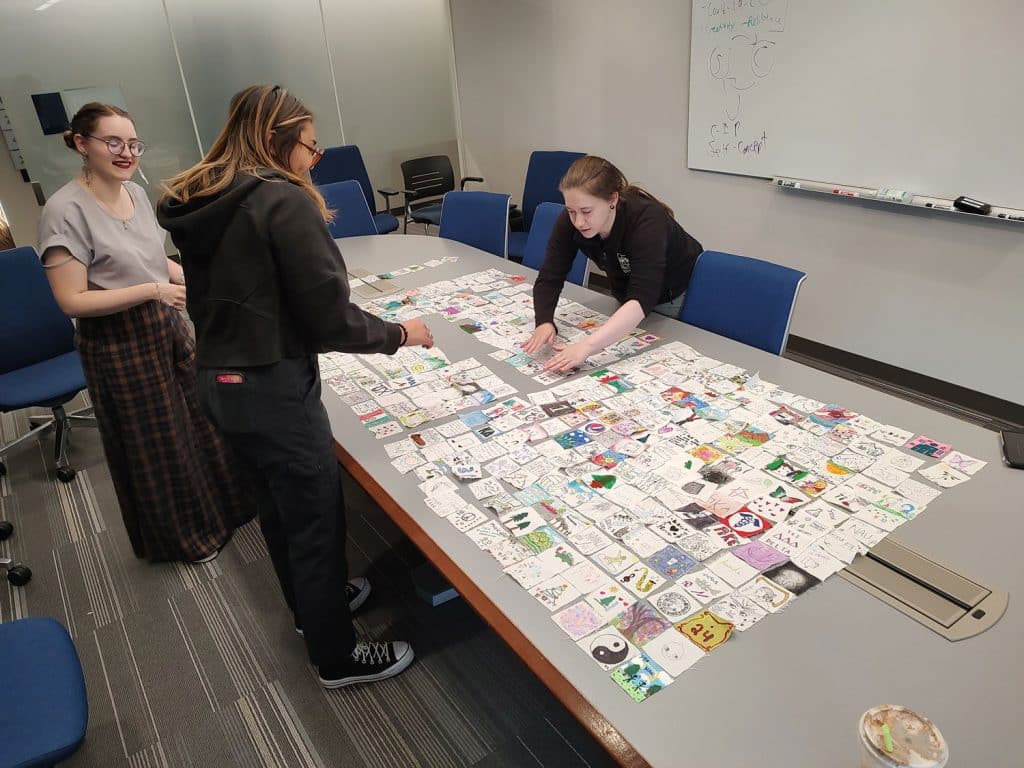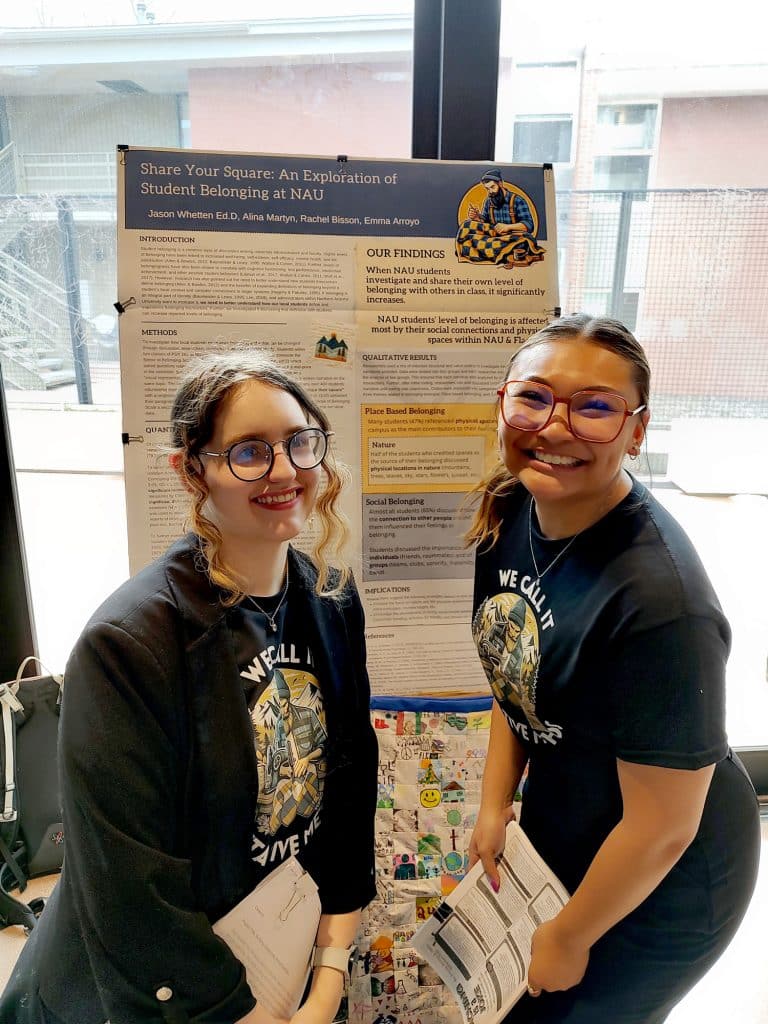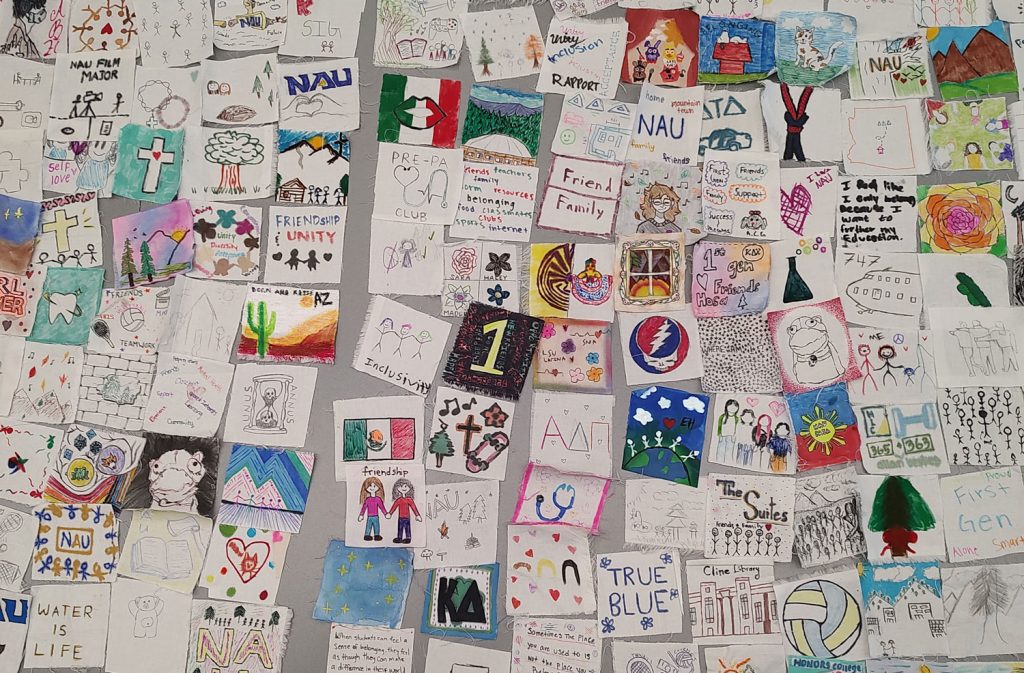Universities offer many ways to find community: clubs, sports, affinity groups, Greek life. Still, some students struggle to feel a sense of belonging.
Jason Whetten understands. A first-generation college student who transferred to NAU from a community college, Whetten remembered feeling lost and lonely in his first months at the Flagstaff mountain campus.
“I had this sense that there was a ‘hidden curriculum’ that everyone else had taken—all these invisible things I was supposed to know but didn’t,” Whetten said. “I didn’t know where to go if I had questions about what classes I should take or what career I should pursue. I didn’t even know master’s degrees existed.”
More than a decade later, Whetten is an associate teaching professor in the Department of Psychological Sciences at NAU, where he teaches the popular Introduction to Psychology each semester. Despite the 600-person class size, Whetten always finds a way to foster a sense of inclusion and belonging.

“We have a lot of initiatives on campus that focus on belonging, but not in the classroom,” Whetten said. “I think it’s important for me to make connections with students and help them feel like they’re part of a community, especially if they come from a background like mine.”
Whetten said his interest in belonging started a few years ago when he was a doctoral student at NAU in the height of the COVID-19 pandemic. As part of his dissertation, Whetten asked his students to discover or delve deeper into stories about their cultural heritage. He hoped the assignment would teach students a little bit about the scientific study of behaviors, thoughts and feelings while also helping them feel a little less alone during a time of social isolation.
“I found students responded really well to that,” he said. “They realized, ‘If my great grandmother could survive famine or poverty or discrimination, I can write this paper. I’m not the only person who goes through hard times.’ They reported that they felt a better sense of belonging to their culture and even to NAU.”
Every semester since then, Whetten has found a way to study—and foster—belonging, with the psychology classroom as his laboratory and the students as his subjects and co-investigators. In Fall 2023, he worked with a handful of student teaching assistants to design and implement a quirky study on belonging centered on quiltmaking.
Months after surveying two classes of 600 students on their feelings of isolation or belonging, Whetten and the TAs asked each of the students to design a 2-inch square that illustrated how they felt about belonging and community on campus, along with a short essay describing their design. Students brought their squares to class, paired up and discussed the concept of belonging with each other. In the spring, as one student stitched a quilt together, Whetten and the TAs analyzed the designs and essays using coding software that helped them pick out themes and keywords.

Whetten said students most frequently associated belonging with specific groups they were part of—like bands, teams and sororities—or with specific places on campus—like academic buildings or residence halls.
Whetten said two more unexpected themes emerged: diversity and nature.
“We found a lot of people talking about how they felt like they belonged at NAU because it’s so diverse, which is fascinating,” he said. “And more students than I expected talked about nature—the quilt is covered in pictures of trees and leaves, and the essays mention the sky, the stars, the mountains. Lots of people feel at home here because of the natural environment.”
Most importantly, Whetten said, students reported decreased feelings of isolation and increased feelings of belonging after the quiltmaking project as compared to the beginning of the semester.
For TA Alina Martyn, who helped code students’ essays, cut more than 1,000 quilt squares by hand and led a first prize-winning presentation on the project at the Showcase of Strategies for Student Success, joining Whetten’s study provided her with more than just work experience.

“At the end of the project, after reading their words, I felt a profound bond with these students,” Martyn said. “I think that’s one of the main aspects that makes our research stand out: We gave the students a voice and didn’t try to limit them. This entire experience has only cemented the fact that I want to dedicate the rest of my life to learning more about the human condition and trying to implement as much good in the world as I can.”
Whetten said the study offered an important lesson, for him and maybe for other teachers too: Building time for students to engage with each other is extremely important. Whetten said he’ll repeat the experiment in the fall, this time with puzzle pieces and even more interaction in class.
“This was a very small intervention that made a big impact,” Whetten said. “Giving students space to talk about themselves, to put themselves out there a little bit, is so valuable. When we hear a little bit about others—their struggles, feelings of belonging, feelings of isolation—it helps us feel like we belong and like our own stories are more valid.”
Jill Kimball | NAU Communications
(928) 523-2282 | jill.kimball@nau.edu




